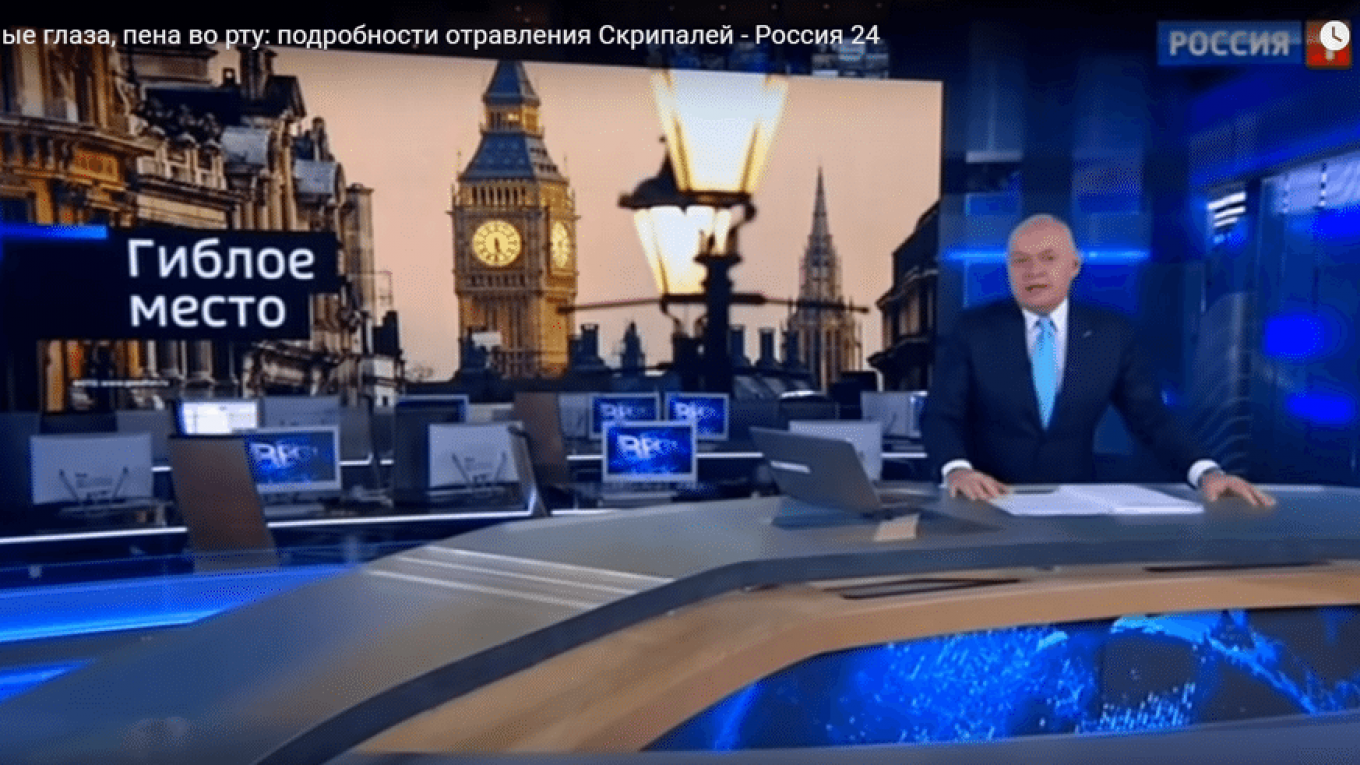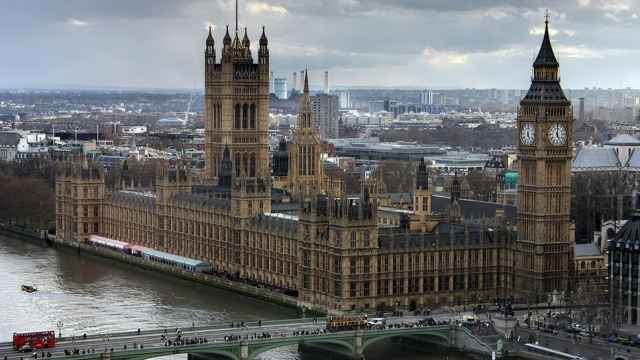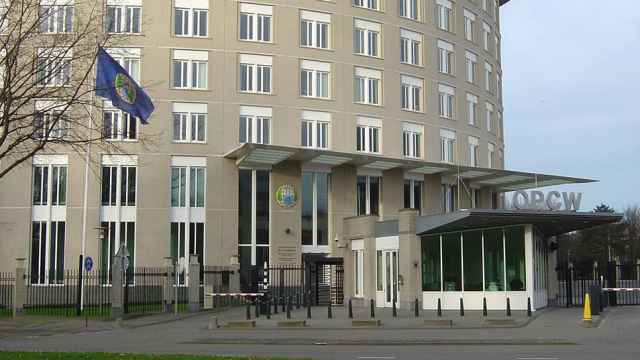Russian state media pundits have laid the blame on Britain for the poisoning of double agent Sergei Skripal and his daughter Yulia in southern England.
Sergei Skripal, a former Russian intelligence officer living in Britain, and his adult daughter, are in critical condition after being exposed to a nerve agent in Salisbury on March 4. British media reported that Prime Minister Theresa May could publicly blame Russia for the Skripals’ poisoning and impose sanctions on Monday.
A Russian television host made headlines for breaking the fourth wall last week, warning “traitors” against settling on British soil due to the number of “strange incidents with grave outcomes.”
Top Kremlin propagandist Dmitry Kiselyov seized on the warning in his weekly talk show on Sunday, calling London a “death trap for Russians.”
“If you think hard about it, only Britain stands to benefit from the poisoning of the GRU colonel. Simply to nourish its Russophobia,” Kiselyov said during a segment on his flagship Vesti Nedeli news show on Channel One.
“As a source, Skripal is squeezed dry and gutted. But, poisoned, he is very much useful: so why not poison him, what’s it to them? And with his daughter to boot, to make it even more heart-wrenching for the public,” Kiselyov said.
Another TV host on Channel One, Valery Fadeev, said that the poisoning “looks like a provocation, a covert operation against Russia.”
“They use agents who are no longer needed, [who are] useless,” the host said in a Voskresnoye Vremya segment.
According to Irada Zeynalova, the host of “Weekly Roundup” on the state-run NTV television network, the Skripals’ poisoning “could be the start of a very tough scandal provoked by someone.”
“It’s clear that someone played on British stereotypes,” Zeynalova said during her show on Sunday.
“Was Skripal dangerous to the Kremlin? Well, no, otherwise he wouldn’t have been let go. Just a pardoned traitor,” she said.
A Message from The Moscow Times:
Dear readers,
We are facing unprecedented challenges. Russia's Prosecutor General's Office has designated The Moscow Times as an "undesirable" organization, criminalizing our work and putting our staff at risk of prosecution. This follows our earlier unjust labeling as a "foreign agent."
These actions are direct attempts to silence independent journalism in Russia. The authorities claim our work "discredits the decisions of the Russian leadership." We see things differently: we strive to provide accurate, unbiased reporting on Russia.
We, the journalists of The Moscow Times, refuse to be silenced. But to continue our work, we need your help.
Your support, no matter how small, makes a world of difference. If you can, please support us monthly starting from just $2. It's quick to set up, and every contribution makes a significant impact.
By supporting The Moscow Times, you're defending open, independent journalism in the face of repression. Thank you for standing with us.
Remind me later.






